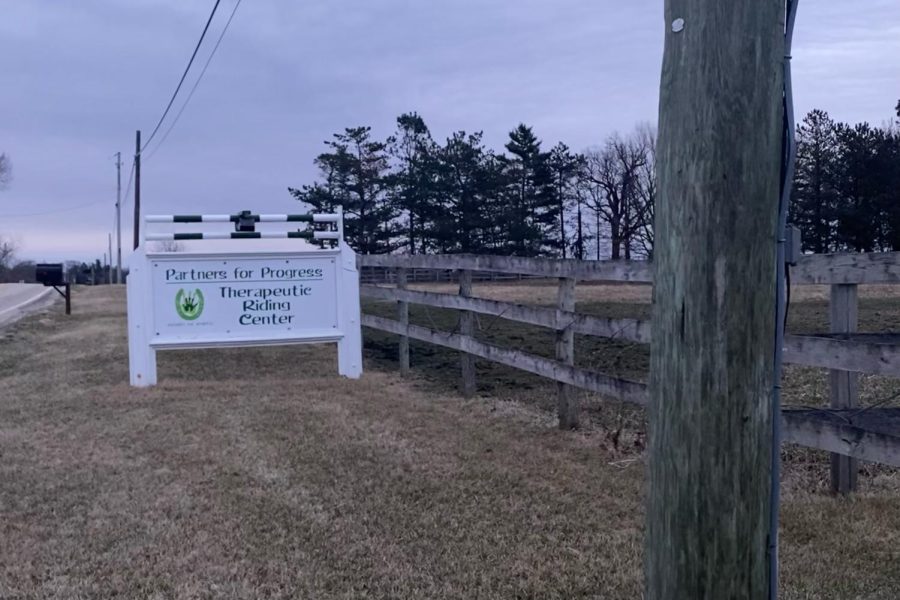Healing on horseback: Therapy center helps kids as they grow
May 2, 2022
In an arena full of sand, children engage in a series of activities like grooming, riding and exercises with horses. They begin by walking on the horses and are eager to embark on the next activities planned by their therapists.
Here at the Partners for Progress Therapeutic Equestrian Center, therapists use horse therapy to increase abilities and function for children and adults with different kinds of needs.
Equine-assisted psychotherapy utilizes the tranquil nature of horses to soothe and engage those with developmental and physical disabilities. It has been proven to improve children’s healing from trauma as well as increase confidence and self-esteem.
Amanda Braden, PFP’s program director and occupational therapist, said that horse therapy is one of the most unique forms of therapy.
“We have a different approach than most kinds of therapies because our program really grows with our clients, so we are centered at meeting various needs across one’s entire life span,” she said.
Located almost an hour northwest of Chicago in Wauconda, the center has 26 horses, more than 100 volunteers and 200 clients a week. PFP was founded in 2005 by Diane Helgeland, a former special education teacher and with a lifetime of experience working with people with disabilities and horses.
“She naturally paired the things that she was good at and that were near and dear to her to provide opportunities for others,” Ms. Braden said.
PFP has faced a number of obstacles due to the coronavirus and paused all programming for anywhere from a month for some children, to a year for others.
“We have been fortunate enough to have many of our donors step up and keep us going. Even though we are slowly returning to normal, the needs of the horses never changed,” she said. “It is important to keep them extremely healthy so that they can continue to be happy, healthy horses and provide quality care for our kids.”
Ms. Braden’s favorite part of her job is being surrounded by and witnessing the progress of the children.
“Seeing our clients and kids make changes so progressively and being a part of helping their families work through the challenges that they are facing on a daily basis is profound,” she said.
Ms. Braden urges people to volunteer at the center to engage in the community and participate in an immersive experience. She said volunteers feel rewarded and get a lot out of the process.
Samantha Clark, a volunteer, said that her experience at PFP has so far been a great experience.
“PFP is a great way of helping my community. I love working with children and people,” she said.
Beena Kamath-Rayne, a client whose son has received PFP’s services for around six months, said she is thankful for the program.
“It has been remarkable to see how he has engaged with the horses and done different activities that promote his strength and development,” Ms. Kamath-Rayne said.
Laughter and a feeling of warmth occupy the environment at the PFP Center, where progress is possible for everyone.
Ms. Kamath-Rayne said, “PFP is an incredible service to the community in the sense that it enables my son to get a combination of therapies in one setting in a way that is innovative and really captures his attention and engagement.”





























































